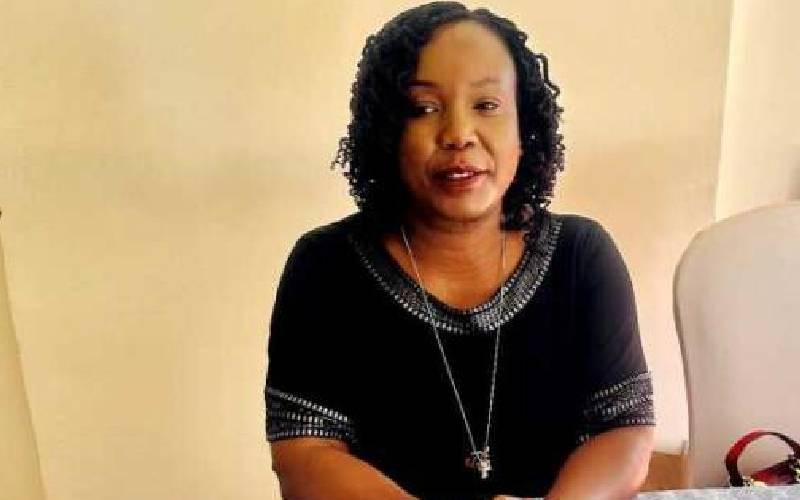By David Ochami
In southern Somalia
On January 3, the Kenya Defence Forces stormed Al Shabaab’s stronghold of Fafadun after launching air and mortar strikes on the militants’ positions.
Among the casualties was Sheikh Hussein Hassan — a man the KDF did not initially recognise when he crawled out of a thicket clutching his bullet-riddled chest.
KDF personnel initially thought they had wounded an innocent man until Transitional Federal Government troops arrived. A quick search revealed five bullets hidden in a Koran. Also concealed underneath the 60-year-old man’s robes was a thick wad of Somalia shillings.
He was identified by TFG Intelligence and locals as the chief of logistics and regional commander of Al Shabaab for the entire Gedo region — which, historically, has been a breeding ground for radical Islamic militancy from the 1990s.
Sheikh Hussein was taken into TFG custody and later died of his injuries. He was buried in an unmarked grave in Fafadun — a conservative town enveloped by decades of indoctrination by radical Islamists of all shades since the collapse of the Somalia nation.
Hussein’s profile within Somalia’s Islamist movement is now unraveling as the militants stepped up ambushes on KDF and TFG forces in El Ade town (which was captured on January 5) and Fafadun, the latter which Al Shabaab appear determined to turn into a shrine of sorts following the slain leader’s "martyrdom".
Forced marriages
A few courageous town folk are celebrating the Sheikh’s killing, terming it an end to extortion, executions and forced marriages of local girls to foreign and other Al Shabaab "mujaheedin". The only pictures available of the slain leader are grainy footage taken on a cell phone showing a graying man, bound and gagged on top of a TFG pick-up truck.
TFG troops recovered a Browning pistol, three HF radios and other war material from the sheikh.
"He is responsible for all the atrocities committed in Gedo under Al Shabaab," said Abdirashid Gurhan, the commanding officer of TFG forces now policing Fafadun.
"Our daughters were taken away and forced to marry people they did not love," claimed Aden Shuquul, a local elder, adding that when Hussein was alive, he visited Fafadun often to collect obligatory taxes or inflated zakat and "had the power to order residents executed for defaulting".
Major Nathan Ndiema, who led the KDF assault on Fafadun, believes Al Shabaab’s command structure will be affected by the loss of the sheikh who TFG officials allege had been deployed by Al Shabaab’s leaders in Mogadishu in October to repulse Kenyan and TFG forces at the start of Operation Linda Nchi.
TFG’s fledgling Intelligence services now say Hussein was an ethnic Marehan clansman born in Bardheere town in 1952 and has been a veteran of Somalia’s radical islamist movements since the 1990s, rising through the ranks of the defunct Al Ittihad Al Islam (AIAI) and the former Islamic Courts Union before they were driven out of Mogadishu by Ethiopian forces in 1996 and 2006.
During his sojourn in the AIAI, he trained fighters and supported operations of Ethiopia’s separatist Ogaden National Liberation Front on orders of former AIAI leader Sheikh Hassan Dahir Aweys.
Afghanistan
According to TFG records, Hussein had his basic education in Mogadishu before joining the army of fellow Marehan clansman Mohamed Siyaad Barre in the 1970s. Hussein and slain Al Shabaab leader Aden Ayro visited and trained with the Taliban or Al-Qaeda in Kandahar, Afghanistan, in 1994. Ayro was killed in a US missile strike about five years ago.
When Hussein was caught in the airstrike, he is believed to have been in the company of another militant, Sheikh Mohamed Bishaar, who took over Al Shabaab’s command in Gedo following the January 3 killing.
The huge wad of notes found on Hussein had been extorted from Fafadun residents where he had driven to from Busar, a town seized by KDF last October. During his rule in Fafadun, it was said the Sheikh had ordered the exhumation of graves of scholars or Islamic leaders he decreed to be sufis or heretics.
 The Standard Group Plc is a multi-media organization with investments in media
platforms spanning newspaper print operations, television, radio broadcasting,
digital and online services. The Standard Group is recognized as a leading
multi-media house in Kenya with a key influence in matters of national and
international interest.
The Standard Group Plc is a multi-media organization with investments in media
platforms spanning newspaper print operations, television, radio broadcasting,
digital and online services. The Standard Group is recognized as a leading
multi-media house in Kenya with a key influence in matters of national and
international interest.
 The Standard Group Plc is a multi-media organization with investments in media
platforms spanning newspaper print operations, television, radio broadcasting,
digital and online services. The Standard Group is recognized as a leading
multi-media house in Kenya with a key influence in matters of national and
international interest.
The Standard Group Plc is a multi-media organization with investments in media
platforms spanning newspaper print operations, television, radio broadcasting,
digital and online services. The Standard Group is recognized as a leading
multi-media house in Kenya with a key influence in matters of national and
international interest.









